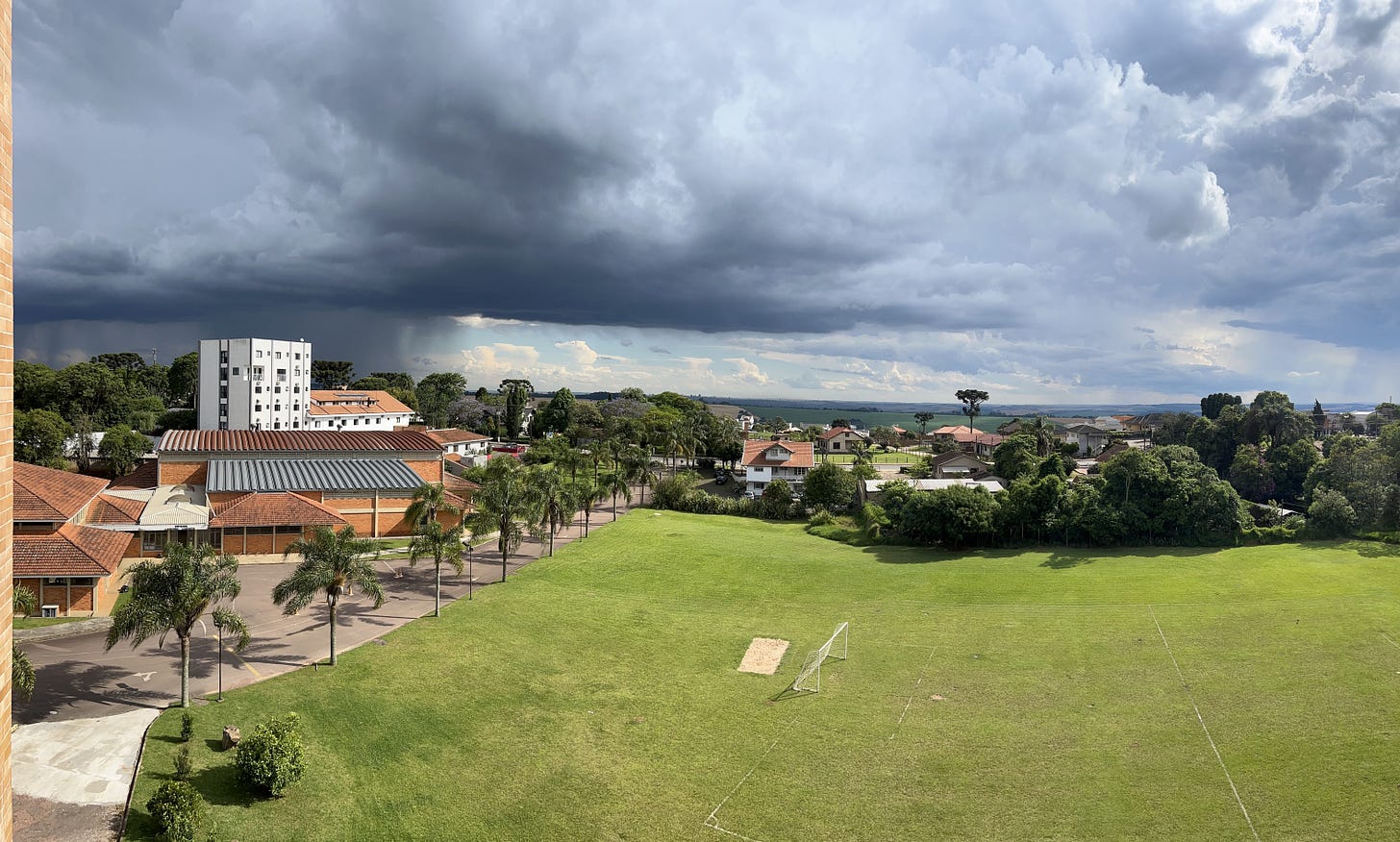Could MLK Give A TED Talk Today?
Not without an internal struggle. Why wokeness is not dead. And why that matters.
We are past peak-woke. Look: even the Republican candidates aren’t using the word anymore. Ibram X Kendi’s $43 million “antiracism” center at Boston University has imploded, and produced virtually nothing. A huge murder wave in the wake of BLM has dented the appetite for defunding the police. Some red states have stopped indoctrinating children in critical race, gender, and queer theory. Many blue cities are experiencing the chaos and degeneracy that woke governance generates. The election will be fought over the economy, crime, immigration, and Trump. Time to move on.
It’s tempting to believe this, especially if you’re just as irritated by anti-woke diatribes. And there is undeniably a vibe-shift away from the moral panic over “white supremacy” in 2020. Crude, reductionist, unfalsifiable doctrines bore even the faithful after a while. But virtually nothing has changed in higher education; public high schools are still teaching the core concepts of CRT; kindergarteners are still being told to pick a sex and a pronoun; children with gender dysphoria are still having their bodies irreversibly altered. The Democrats are still on board. So is corporate America, as we saw with the cringe overkill of Pride Month. As for Boston University, its response to the Kendi mess is that it will “absolutely not” abandon his dumb-as-a-post concept of “antiracism,” or the center devoted to it.
Some other examples from just this week. The brilliant and pathologically civil writer, Coleman Hughes, was put through the wringer at TED, and had his talk suppressed, because it echoed Martin Luther King Jr’s goal of color-blindness in society. A panel at the American Anthropological Association was suddenly canceled because it was about the remaining salience of biological sex in the discipline. A panel on a Harry Potter production in London at Comic Con was canceled after a transqueer hissy fit. And a Bloomberg study of corporate hiring in 2021 found that only 6 percent of jobs that year went to whites, while 94 percent went to “people of color.” Even accounting for generational shifts in demographics, that’s an indicator that Kendi’s dictum — “the only remedy for past discrimination is present discrimination” — was taken very seriously.
When I’m told that these incidents are trivial, or marginal, I have a simple response. Ideas matter. They matter more in the long run than the most powerful individuals; ideas shift the minds of people in ways that change society more profoundly than anything else. Kings and presidents and regimes come and go — but ideas last. Once obscure scribblers like Hobbes, Machiavelli, Locke, Marx, or Nietzsche created the world we live in. And when you swap one set of ideas as the basis for society for another one entirely, it is not just an intellectual exercise. It’s a life- and world-changing one. If you haven’t experienced the effect of this in the last few years, you need to get out more.
And the philosophy that underpins the stymieing of Hughes’ speech and so many other appalling incidents of intolerance over the last few years is a real one, constructed quite recently. And the leaders of this movement, unlike its more winsome critics, really believe, as I do, that ideas matter — which is why, since the failure of 1960s campus activism and domestic terrorism, they have worked from the universities outward to control and change the world. And triumphed!
Christopher Rufo’s new book America’s Cultural Revolution is a useful, often excellent account of the emergence of this triumphant illiberalism, and how it came to power in the US. Leave aside for a minute Rufo’s polarizing nature and the book’s attempted solutions, which are highly contestable; and its omissions (there is barely any treatment of critical gender and queer theory). Note too that a broader account of wokeness would incorporate the prescience of Christopher Lasch and Philip Rieff, and an account of how neo-Marxism merged with the culture of narcissism and therapy.
Focus instead on the radical thinkers Rufo cites: Herbert Marcuse, Angela Davis, Paulo Freire and Derrick Bell. Read them yourself.
It’s staggering how clearly you can see in their once-marginal writing and speaking the world we now live in. The old America — rooted in individual freedom, civil rights, equality of opportunity, merit, hard work, family and country — is swept away in their worldview. And not just swept away: inverted. In this ideology, liberal societies are actually the most effective forms of oppression; “civil rights” are just Jim Crow in disguise; equality of opportunity is a myth, to be replaced by equality of outcome, or “equity”; imprisoning black criminals is the same as enslaving innocent human beings; racial progress is a lie; the individual is a mere unit of a collective identity; and a free society as a whole is merely a set of interlocking oppressions designed to favor white, cis, straight men. It’s all there — decades ago!
Many of the questions a naive person might ask of our contemporary culture and politics can be answered simply by these neo-Marxist texts that are now the guiding principles of the American establishment. Let’s air a few, shall we?
Why does the MSM consciously advance leftist views far more often than right-wing views? Marcuse: “Liberating tolerance, then, would mean intolerance against movements from the Right, and toleration of movements from the Left.” Why did so many in the new elite celebrate and defend looting, violence and arson in the 2020 BLM riots? Marcuse: “If [the oppressed and overpowered minorities] use violence, they do not start a new chain of violence but try to break an established one.”
Why are white employees now required to attend instruction in critical race theory to plumb their own unconscious racism? Marcuse again: “To the degree to which [society’s] slaves have been preconditioned to exist as slaves and be content in that role, their liberation necessarily appears to come from without and above. They must be ‘forced to be free’, to ‘see objects as they are, and sometimes as they ought to appear’, they must be shown the ‘good road’ they are in search of.” Marcuse even came up with the phrase “the dictatorship of the intellectuals.” We now live under it.
Why do left elites rarely condemn the perpetrators of murder if the killers are black? Why does the media obscure their race if they are? Here’s Angela Davis on a young black woman who shot her white supervisor at point-blank range: “We have to realize that Emily Butler is not guilty. It is racism that pulled the trigger. Racism. And if anybody needs to be indicted and imprisoned, it’s the reincarnation of racism itself, Richard Nixon.” That’s why non-white murderers of non-white people are actually enacting “multiracial white supremacy.” Why is The New Yorker running long essays supporting the abolition of prisons, as violent crime surges? Angela Davis again: “If we want to imagine the possibility of a society without racism, it has to be a society without prisons.”
Why is the educational establishment insistent on teaching critical race theory and its concepts from kindergarten onwards? Point Five of the Black Panthers’ Ten-Point Program in 1966: “We want education for our people that exposes the true nature of this decadent American society. We want education that teaches us our true history and our role in the present-day society.” Huey Newton would have been staggered that the New York Times, elite private schools, many blue-state educational systems and the NEA are now on his side. Why has the left focused on shifting educational curricula away from liberal concepts toward critical, neo-Marxist ones in general? Paolo Freire: “The solution is not to ‘integrate’ [students] into the structure of oppression, but to transform that structure so that they can become ‘beings for themselves’.” Revolution starts with indoctrination of the young.
In a snippy, conflicted book review, Cathy Young derides this critique as “conspiracist.” But it’s no more a conspiracy than, say, the economically liberal intellectual movement that championed free markets, deregulation and a smaller state from the 1950s to the 1970s, and helped change the world as well. If it’s a conspiracy, it isn’t a secret one.
And it couldn’t have achieved this mastery of American society without other contingent factors: the astonishing weakness of the leaders of liberal institutions and foundations, more terrified of being called a racist or a transphobe by a teenager than committed to liberal values. And Donald Trump empowered the fanatics more than anyone else in our polity, by further tribalizing and polarizing our culture. And the dominant therapeutic paradigm has supplemented all of it — enforcing ideological orthodoxy via personal emotional blackmail.
There is also an end-of-history boredom to it all. Now that full civil rights are well established, what is a progressive gonna do? They seem less interested in the economic policies that could win multi-racial majorities than in zero-sum narratives of racial and sexual oppression. They need to invent new vistas of discrimination — even unconscious ones — to sustain themselves. Look at the rump of the gay rights movement, now pushing so far into leftist insanity it has abolished the whole concept of homosexuality as same-sex attraction, and targeted mostly gay children for irreversible bodily mutilation. Anything to keep the pulse racing and the donations coming in.
The re-election of Trump — which is at least 50-50 proposition at this point — would further crazy up the left and reduce what tiny amount of oxygen is left for the liberal project to stay alive. But the re-election of Biden would, alas, do much the same. His administration is committed to this neo-Marxism all the way down. It practices race and sex discrimination in all its employment practices; it endorses critical race, gender and queer theory in every area of life; it has adopted wholesale the lingo of the new orthodoxy — “white supremacy”; “equity”; “LGBTQI+ people”; “systemic racism”; “antiracism”; “LatinX”; and on and on. The vice president — openly picked by Biden, like his Supreme Court nominee, because she has the right sex and skin color — is in the vanguard of this revolution, and is Biden’s promise that the regime change will be permanent. There are no liberals left who resist it. They privately bemoan it and publicly mouth its pomo verbiage. In some ways, they are more contemptible than the extremists.
For those who tell me to chill out, I have to repeat: ideas really do matter. You cannot graft deeply illiberal practices and neo-Marxist ideology onto a liberal polity for very long, before the contradictions force a resolution. A House divided so profoundly cannot stand. But the surrender of the Democratic liberals and the insane radicalization of the GOP almost certainly means that peaceful, liberal politics may well not be capable of resolving this contradiction. Which means that something much darker and more violent will.
(Note to readers: This is an excerpt of The Weekly Dish. If you’re already a subscriber, click here to read the full version. This week’s issue also includes: my discussion with Leor Sapir on the transing of gender-dysphoric kids; reader dissents over my latest piece on the border crisis; many more dissents over my talk with Vivek Ramaswamy; six notable quotes from the week in news; an Yglesias Award on exposing a white-supremacist teacher; 21 pieces we loved on Substack this week on a variety of topics; a Mental Health Break inspired by a ketamine trip; a captivating window from Coeur d'Alene; and, of course, the results of the View From Your Window contest — with a new challenge. Subscribe for the full Dish experience!)
From a “faithful sub”:
I just want to say, this customized renewal reminder from Substack is one of the coolest auto-emails I have ever gotten. Most subscriptions are trying to sneak in under the radar and hope you don’t notice; this one reminds me of how happy — and dare I say proud — I am to be a subscriber. You and Chris are above-board and honest with your fan base. Here’s hoping for continued success, as well as good health and happiness.
From a fan of the window contest:
I think I am reasonably well-travelled and well-read, but usually I can barely guess the country. It is awe-inspiring and humbling that every week dozens of readers guess not only the country, but the town, building and even window from where the picture was taken. The information from your readers about the local fauna, food, drink, music and movie connections is always entertaining.
New On The Dishcast: Leor Sapir
Leor is a writer and researcher. He’s currently a fellow at the Manhattan Institute and a frequent contributor to City Journal, particularly on issues of gender identity and public policy. I know of few people more likely to provide light than heat in the agonizing debate over treatment for children with gender dysphoria.
Listen to the episode here. There you can find two clips of our convo — on the sudden skyrocketing of girls seeking transition, and how the medicalizing of trans kids destroys their ability to have orgasms in the future. That link also takes you to a ton of dissents and assents over my talk with Vivek Ramaswamy.
Browse the Dishcast archive for another convo you might enjoy (the first 102 episodes are free in their entirety — subscribe to get everything else). Coming up: Ian Buruma on his new book The Collaborators: Three Stories of Deception and Survival in World War II, the young reactionary Spencer Klavan, and Martha Nussbaum on her book Justice For Animals. Later on: Matthew Crawford, David Brooks and Pamela Paul. Please send any guest recs, pod dissent and other comments to dish@andrewsullivan.com. From a fan:
I paid to be a member of your podcast, which I would not normally do. There is a great humanity in your interviews, even when you get into theoretical weeds. I feel that you are a deeply spiritual person who has overcome many physical and emotional obstacles. Even when you confront people, there is a graceful respectfulness. (I also like that you find people who are academics from schools small and large.) L'shana tova and God bless.
Dissents Of The Week: What’s Your Solution For The Border Crisis?
A reader is unsatisfied with my latest column:
There are few more reliable column topics than a conservative complaining about immigration, while providing absolutely no specifics about what to actually do about it. Please use your enormous intellect to inform us clueless readers of the solution that is both technologically and politically feasible.
Read my response to that reader, along with two others, here. Many more dissents against me and Vivek Ramaswamy are on the podcast page. Follow more Dish discussion on the Notes site here (or the “Notes” tab in the Substack app).
In The ‘Stacks
This is a feature in the paid version of the Dish spotlighting about 20 of our favorite pieces from other Substackers every week. This week’s selection covers subjects such as this week’s GOP debate, Fauci’s secrecy, and Suella Braverman’s “controversial” view of multiculturalism. Below is one example, followed by a few newcomers:
Louise Perry: “Liberal individualism is great for people when they don’t depend on others” — until you get old.
Junot Díaz, the famed fiction writer, joins Substack. And a warm welcome to Brian Beutler, the old-school blogger.
You can also browse all the substacks we follow and read on a regular basis here — a combination of our favorite writers and new ones we’re checking out. It’s a blogroll of sorts. If you have any recommendations for “In the ‘Stacks,” especially ones from emerging writers, please let us know: dish@andrewsullivan.com.
The View From Your Window Contest
Where do you think it’s located? Email your guess to contest@andrewsullivan.com. Please put the location — city and/or state first, then country — in the subject line. Proximity counts if no one gets the exact spot. Bonus points for fun facts and stories. The deadline for entries is Wednesday night at midnight (PST). The winner gets the choice of a VFYW book or two annual Dish subscriptions. If you are not a subscriber, please indicate that status in your entry and we will give you a free month subscription if we select your entry for the contest results (example here if you’re new to the contest). Happy sleuthing!
The results for this week’s window are coming in a separate email to paid subscribers later today. From a sleuth who should’ve followed his gut last week:
WTActualF? You mean to tell me I outsmarted myself and correctly guessed Santa Fe because the entry point was indeed the “feel” of the View? That after totally dismissing the feel as immaterial (or at least too generalized here), it was actually correct? I’m laughing my ass off at the degree to which I can overthink this contest.
So anyway, Santa Fe is an amazing town, isn’t it? I went there on business a couple decades ago, loved the hell out of it, and when I came home, immediately made plans to return with my wife. We did — a few months later, and we had a stunningly great time. Canyon Road was a real trip; the contrast between kitsch and seriously good art was enough to keep our heads spinning. But we did happen upon an artist whose work blew us away by the name of Karen Harms. Sadly, there’s not much of her work viewable online, but this painting hangs in our front hall:
Another piece of art comes from the sleuth who makes meals for his family every Sunday inspired by the window location:
I loved the biologist-sleuth’s piece about roadrunners. We often see them running up and down our driveway in Tucson. We visited Santa Fe last year for the opera during the Indian Market (maybe we were there at the same time as the sleuth who took the picture). We bought this sculpture made of spoons and nails:
Meep meep, and see you next Friday.






